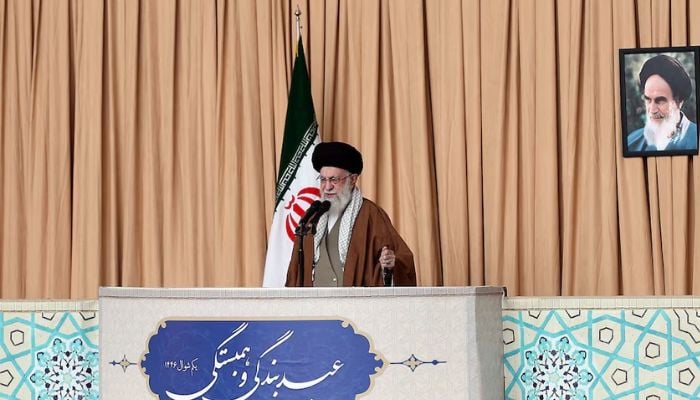Iran’s Supreme Leader Issues Warning Amid U.S. Tensions
Iran’s Supreme Leader, Ayatollah Ali Khamenei, declared on Monday that the United States would face significant repercussions if it follows through on President Donald Trump’s threat to conduct airstrikes unless Iran agrees to a revised nuclear agreement.
On Sunday, Trump reaffirmed his stance, claiming that military action would be taken against Iran if its leaders did not accept his proposed talks, outlined in a letter sent earlier in March, which gave Tehran a two-month deadline to respond.
Iran conveyed a cautionary message regarding Trump’s threats to the Swiss embassy, which represents American interests in Tehran, stating that it would respond "decisively and immediately" to any perceived aggression, according to state media reports.
"The animosity from the U.S. and Israel has always existed. They may threaten us with attacks, which we don’t believe are likely, but if any provocation occurs, they will certainly face a substantial counterstrike," Khamenei warned.
He added, "If they attempt to incite unrest within our country like they have in previous years, the Iranian people will handle it themselves."
Iranian officials attribute recent unrest—such as the protests following the death of Mahsa Amini in custody for allegedly violating hijab laws and the 2019 demonstrations over rising fuel prices—to foreign interference.
Last week, Iran responded to the U.S. letter, with President Masoud Pezeshkian emphasizing that the country would not engage in direct negotiations with Washington but remains open to indirect discussions as directed by Khamenei.
"An explicit threat of bombing from a head of state aimed at Iran is a shocking violation of international peace and security," Foreign Ministry Spokesperson Esmaeil Baghaei tweeted on Monday. "Violence leads to violence, while peace fosters peace. The U.S. must decide its path and accept the consequences."
Amirali Hajizadeh, commander of the Revolutionary Guards Aerospace Force, issued a threat to U.S. forces stationed in the region. He pointed out that "Americans have at least ten bases in the area with 50,000 troops. They live in a fragile environment and should be cautious."
During his first term from 2017 to 2021, Trump withdrew the U.S. from the 2015 nuclear agreement between Iran and world powers that had established strict limits on Iran’s contentious nuclear endeavors in exchange for sanctions relief. He subsequently reinstated extensive sanctions against Tehran.
Since then, Iran has significantly exceeded the agreement’s uranium enrichment constraints. Western nations accuse Iran of pursuing a covert objective to develop nuclear weapons capabilities by enriching uranium to a level of fissile purity that they argue is unjustifiable for civilian nuclear energy programs. In response, Tehran maintains that its nuclear activities are strictly for civilian energy generation.





